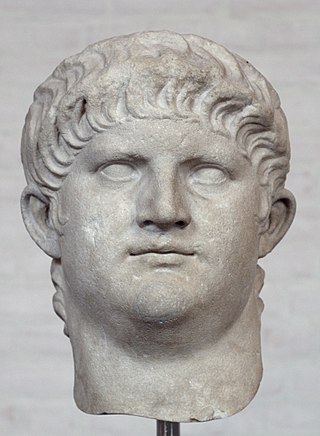
Nero Claudius Caesar Augustus Germanicus was a Roman emperor and the final emperor of the Julio-Claudian dynasty, reigning from AD 54 until his death in AD 68.
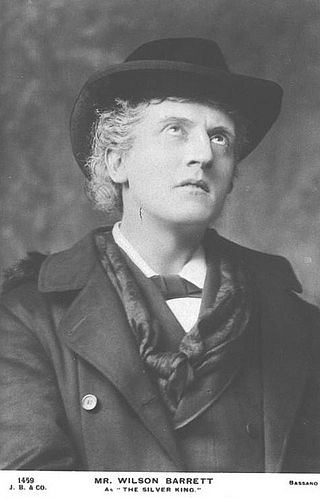
Wilson Barrett was an English manager, actor, and playwright. With his company, Barrett is credited with attracting the largest crowds of English theatregoers ever because of his success with melodrama, an instance being his production of The Silver King (1882) at the Princess's Theatre of London. The historical tragedy The Sign of the Cross (1895) was Barrett's most successful play, both in England and in the United States.
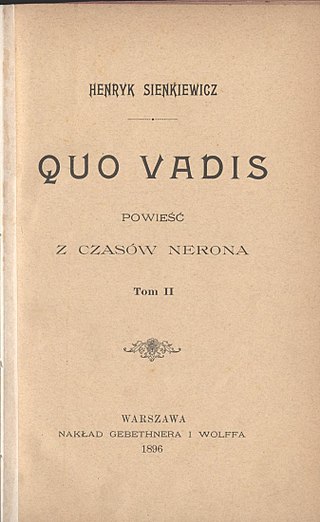
Quo Vadis: A Narrative of the Time of Nero is a historical novel written by Henryk Sienkiewicz in Polish.

Tiberius Julius Caesar Nero, known as Tiberius Gemellus, was the son of Drusus and Livilla, the grandson of the Emperor Tiberius, and the cousin of the Emperor Caligula. Gemellus is a nickname meaning "the twin". His twin brother, Germanicus Gemellus, died as a young child in AD 23. His father and older cousins died, and are suspected by contemporary sources as having been systematically eliminated by the powerful praetorian prefect Sejanus. Their removal allowed Gemellus and Caligula to be named joint-heirs by Tiberius in 35, a decision that ultimately resulted in Caligula assuming power and having Gemellus killed in late 37 or early 38.

The Squaw Man is a 1914 American silent Western film directed by Cecil B. DeMille and Oscar C. Apfel, and starring Dustin Farnum. It was DeMille's directorial debut and one of the first feature films to be shot in what is now Hollywood.
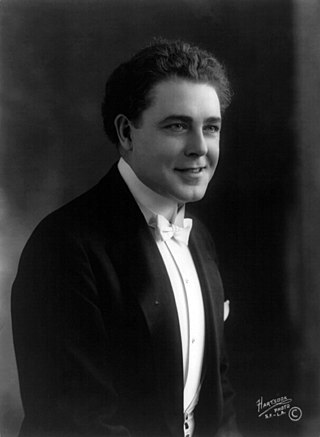
William Farnum was an American actor. He was a star of American silent cinema, and he became one of the highest-paid actors during this time.

The Sign of the Cross is a 1932 American pre-Code epic film produced and directed by Cecil B. DeMille and released by Paramount Pictures. Based on the original 1895 play by English playwright Wilson Barrett, the screenplay was written by Waldemar Young and Sidney Buchman. It stars Fredric March, Elissa Landi, Claudette Colbert, and Charles Laughton, with Ian Keith and Arthur Hohl.

Mabel Van Buren was an American stage and screen actress.

Nero Claudius Caesar Augustus Germanicus and his reign have featured in music, literature, the arts, and in business.

Lillah, Lady Keeble OBE was an English actress and theatrical manager.

Ethel Grey Terry was an American actress of the silent era. She is best remembered for her role in The Penalty with Lon Chaney.
William Franklin Haddock, aka William F. "Silent Bill" Haddock, was an early film director of the silent era. From 1909 to 1919 Haddock directed twenty-four feature and short movies.

Lucille May Young was an American actress of the early silent film era.
The Sign of the Cross is an 1895 four-act historical tragedy, by Wilson Barrett and popular for several decades. Barrett said its Christian theme was his attempt to bridge the gap between Church and stage. The plot resembles that of Henryk Sienkiewicz's historical novel Quo Vadis, which was first published between 26 March 1895 and 29 February 1896 in the Gazeta Polska, 11 months after the play's first production.

Maud Evelyn Craven Jeffries was an American actress. A popular subject for a wide range of theatrical post-cards and studio photographs, she was noted for her height, voice, presence, graceful figure, attractive features, expressive eyes, and beautiful face.

Winter Carnival is a 1939 comedy-drama film directed by Charles Reisner and starring Ann Sheridan, Richard Carlson and Helen Parrish. Jill Baxter returns to her college for the annual Winter Carnival and falls in love with an old boyfriend.

Fugitive Lady, Italian: La strada buia, is a 1950 crime–drama film directed by Sidney Salkow and Marino Girolami (Uncredited). It stars Janis Paige, Binnie Barnes, and Massimo Serato. Fugitive Lady is based on the novel Dark Road by Doris Miles Disney. Film editing was done by Nino Baragli. It was shot at the Scalera Studios in Rome.
Rosina Henley was an American actress and screenwriter active during Hollywood's silent era. She was married to British film director Harley Knoles, with whom she frequently collaborated.
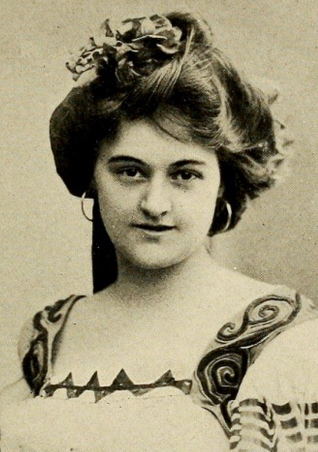
Helen Bertram was an American actress and singer in comic opera and musical theatre. She was also known for her tumultuous private life.
Carlotta Addison was an English actress. Stage appearances included leading roles in original productions of plays by T. W. Robertson, W. S. Gilbert, H. J. Byron and Arthur Wing Pinero.
















